Contents
Long-legged false feather, elongated hypholoma in biological reference books has the Latin name Hypholoma elongatipes. Mushroom of the genus Hyfoloma, Strophariaceae family.
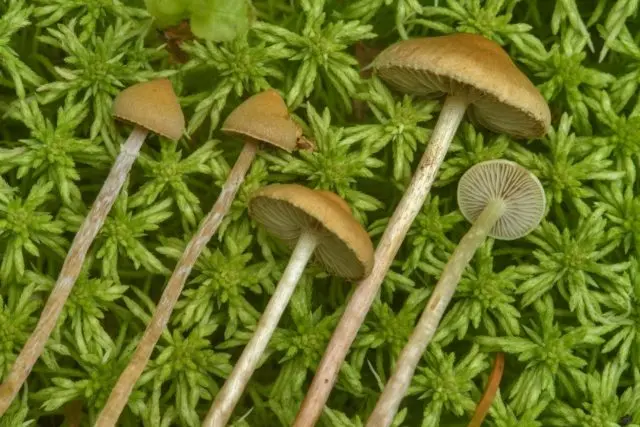
An inconspicuous mushroom with a disproportionate structure of the fruiting body
What does a long-legged false feather look like
Small caps of medium diameter – up to 3 cm, are located on thin straight legs, the length of which can reach up to 12 cm. The color changes during the growing season, in young specimens the color is light yellow, then it becomes ocher. Mature false honeycomb is painted in olive tones.
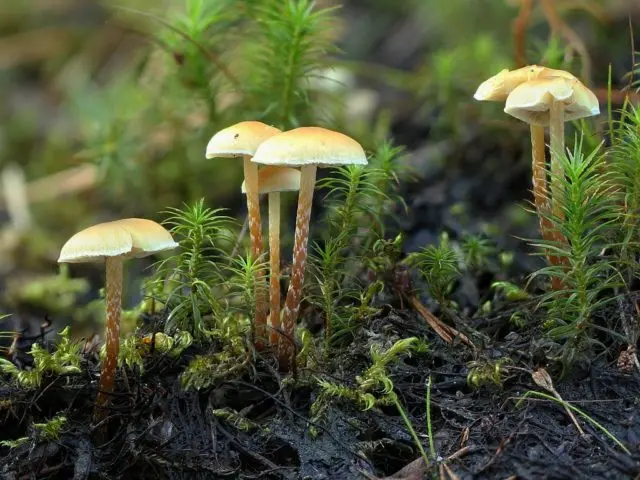
Grows in small groups of no more than 2-4 specimens
Cap Description
At the beginning of growth, the upper part of the fruiting body is cylindrical in shape with a sharp point in the center. Then the hat opens and becomes hemispherical, and at the end of the growing season – flat.
External characteristic:
- the color is not uniform, in the central part the color is darker;
- the surface is even with radial vertical stripes, the remains of a bedspread in the form of a wavy fringe are visible along the edge;
- the protective film at high humidity is covered with mucus;
- the hymenophore is lamellar, the arrangement of the plates is rare, not extending beyond the cap with a clear border near the stem. The color is yellow with a gray tint or beige.
The pulp is thin light brittle.
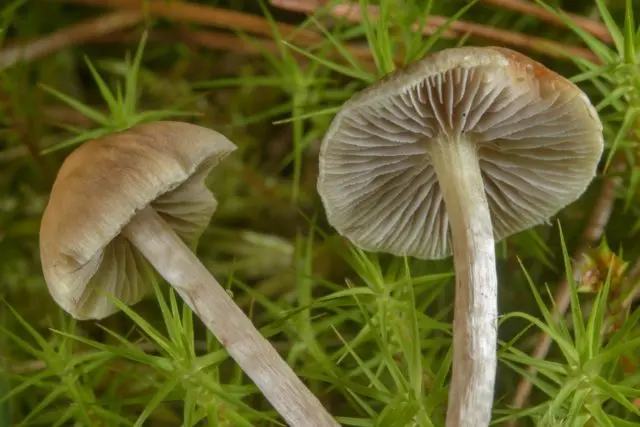
Along the edge of the cap are plates of different lengths.
Description of the leg
The location of the stem is central, it is rather long and narrow, straight growing. The structure is fibrous hollow fragile. The color is light yellow, whitish with a gray tint in the upper part, darker at the base. In young specimens, the surface is finely hairy; by adulthood, the coating falls off.
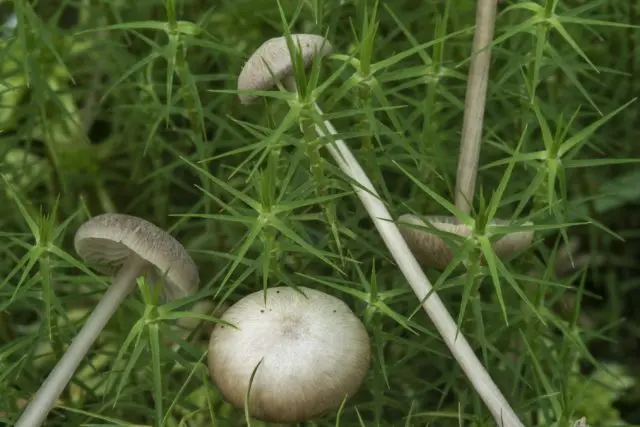
Leg of the same diameter along the entire length, a slight narrowing upwards is possible
Where and how does the long-legged false feather grow
The main accumulation of the species is in mixed or coniferous massifs, in swampy areas. Long-legged false honey agaric grows among a dense moss layer on acidic soils. Fruiting is plentiful. There are fruits singly or in small groups, occupying rather large territories. The long-legged false feather is common in the forests of the Leningrad region, the central and European parts.
Is the mushroom edible or not?
Hyfoloma elongated is in the category of inedible and poisonous mushrooms. Do not use false foam raw and after any type of processing.
Twins and their differences
The twin of hyphalomas elongated is considered to be moss false fronds. The fruit body is larger, the cap in diameter can reach up to 6-7 cm. The stalk is also long and thin. The color of the fruiting body is brown with a greenish tint. The twin is inedible and poisonous.
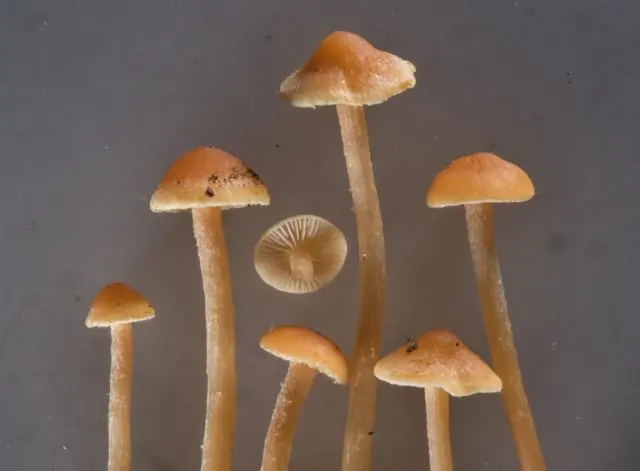
The surface of the cap is finely scaly, covered with a slippery coating.
Sulfur-yellow honey agaric is a poisonous and inedible species. Grows on stumps and rotten dead wood. Forms dense colonies. The leg is thick and short, the color of the fruiting body is yellow with a lemon tint.
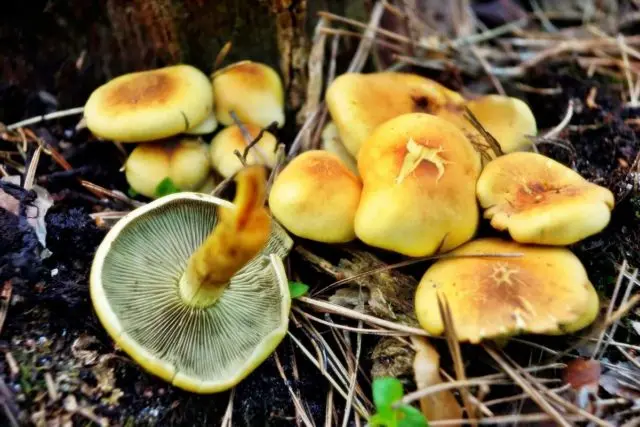
The upper part of the mushroom is dry with a pronounced dark spot in the center
Conclusion
Long-legged false frond is a poisonous mushroom, not suitable for any processing method. Grows in moist acidic soil, moss cushion. Fruits from June to October in all types of forests where there is wetland.









